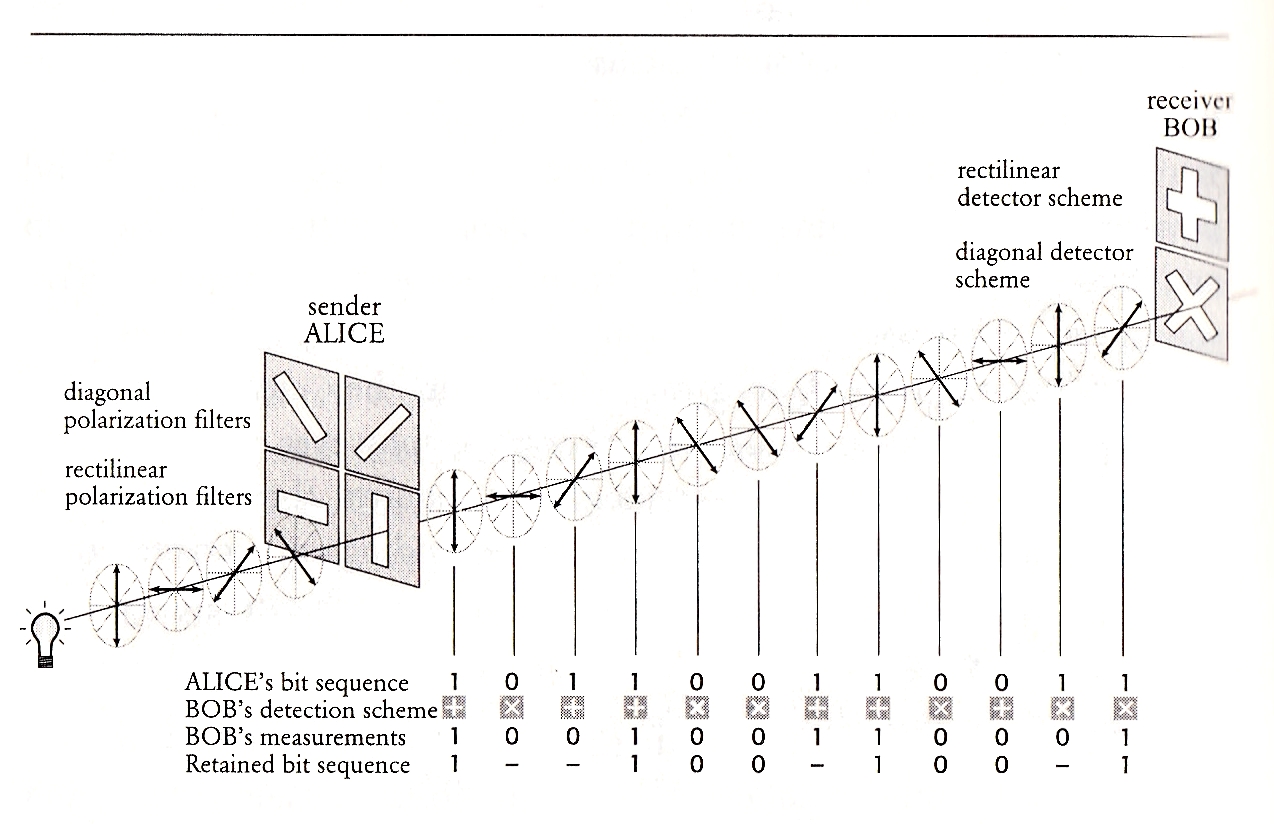Cryptography
One application that makes use of quantum behaviors is quantum cryptography. Quantum cryptography involves shooting photons between two users that want data (qubits) to be inferred from these photons. This quantum data revealed in the photons is called a key, if any third party interferes with the key to decode the message the data becomes inherently unstable and cannot be retrieved by anyone.

Figure 1: Demonstration of using quantum encryption between two users.
Retrieved From: http://1.bp.blogspot.com/-CItzMpljuqk/TWGU7ADNb1I/AAAAAAAABCQ/4JGzxpEhbV4/s1600/quantum_crypto.jpg
Particle Simulation
Due to the qubit’s ability to hold multiple values at once, quantum computers are vastly more powerful in theory than today’s supercomputers. This allows them to compute the huge number of complex interactions that a large system of particles must experience to accurately predict their behavior. It has been shown that even a perfect classical computer couldn’t handle the number of computations and would exponentially slow down with respect to time. Luckily quantum computers, with their information held in superposition theoretically use less particles than the number of particles they have to simulate. For example only 330 qubits can hold roughly 1099 bits of information, similar to the number of particles thought to exist in our universe. This allows for the possibly of simulating our quantum universe on a quantum computer. A compelling notion that very well may one day be a reality.
Statistical Analysis
Another use for quantum computers could be statistical analysis. Since quantum computers can hold so much more data than the computers of today, this could be put to use solving problems with tons of variables. This would allow for a far more accurate analysis of data and could one day help to better numerous aspects of our daily lives ranging from subjects like ecology to engineering.